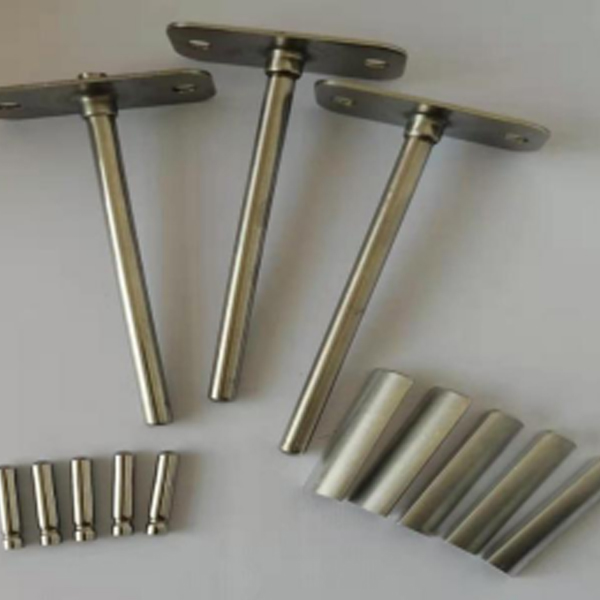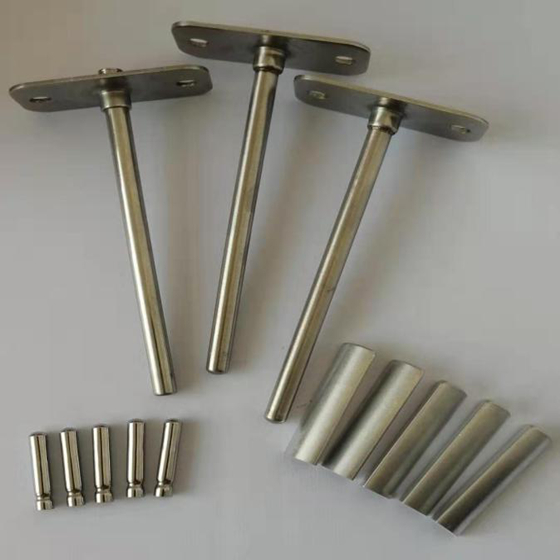When it comes to manufacturing components with intricate shapes and precise dimensions, custom deep drawn parts have become an integral part of various industries. They offer tailored solutions to meet the unique requirements of different applications.
What are Deep Drawn Parts?
Deep drawing is a metal forming process that involves transforming flat sheet metal into three-dimensional shapes using a punch and die. The sheet metal is clamped and drawn into a die cavity, creating a seamless and seamless component with a consistent thickness. Deep drawn parts are commonly made from materials such as stainless steel, aluminum, copper, and brass.
Benefits of Using Deep Drawn Parts
Complex Geometries
Deep drawn parts can be produced with intricate shapes and geometries that are difficult to achieve with conventional manufacturing techniques. This allows for the creation of unique and custom designs tailored to specific applications.
Material Efficiency
The deep drawing process minimizes material waste as it utilizes the entire sheet metal. This results in cost savings and improved sustainability compared to other fabrication methods.
Strength and Durability
Deep drawn parts exhibit excellent strength and durability due to the uniform material thickness and absence of seams or welds. They can withstand high levels of stress and pressure, making them ideal for demanding applications.
Applications of Deep Drawn Parts
Automotive Industry
In the automotive sector, deep drawn parts are used in the manufacturing of components such as fuel tanks, engine parts, sensors, and exhaust systems. Their strength, precision, and corrosion resistance make them indispensable for ensuring safety and efficiency on the road.
Electronics Industry
The electronics industry relies on deep drawn parts for the production of enclosures, connectors, and housings. These parts provide electromagnetic shielding, excellent heat dissipation, and space optimization, making them essential for electronic devices and equipment.
Medical Industry
In the medical field, deep drawn parts are used to fabricate surgical instruments, medical implants, and diagnostic equipment. Their biocompatibility, sterilizability, and precision play a crucial role in ensuring the effectiveness and reliability of medical procedures.
Customization Options
Design Flexibility
Deep drawing allows for intricate and complex designs that can be tailored to specific applications. Manufacturers can create components with varying shapes, sizes, and features, ensuring a perfect fit and optimal functionality.
Material Selection
Manufacturers can choose from a wide range of materials to suit their specific needs. The material selection can be customized for optimal performance, whether it's a high-strength stainless steel for automotive applications or a corrosion-resistant alloy for marine environments.
Cost-effectiveness
Custom deep drawn parts offer cost-effective solutions compared to alternative manufacturing methods. The process minimizes material waste, reduces assembly requirements, and eliminates the need for additional components, resulting in overall cost savings.
FAQs
Q1: Are custom deep drawn parts cost-effective compared to other manufacturing methods?
A1: Yes, custom deep drawn parts offer cost savings due to material efficiency, reduced assembly requirements, and elimination of additional components.
Q2: Can deep drawn parts be made from different materials?
A2: Absolutely. Deep drawn parts can be manufactured from various materials, such as stainless steel, aluminum, copper, and brass, depending on the specific application.
Q3: How precise are deep drawn parts?
A3: Deep drawn parts exhibit high levels of precision, thanks to the consistent material thickness, tight tolerances, and excellent surface finishes achieved through the deep drawing process.
Q4: What industries benefit the most from deep drawn parts?
A4: Deep drawn parts find applications in industries such as automotive, electronics, medical, aerospace, and many more due to their versatility and adaptability.
Q5: How can I find a reliable manufacturer for custom deep drawn parts?
A5: When choosing a professional deep drawn parts manufacturer, consider their expertise, capabilities, quality assurance processes, and customer support to ensure a reliable partnership.
Conclusion
Custom deep drawn parts offer tailored solutions for a wide range of industries, providing complex geometries, material efficiency, strength, and durability. Their applications span from automotive and electronics to medical industries, showcasing their versatility. With customization options and the ability to choose reliable manufacturers, businesses can benefit from precise, high-quality components that meet their specific requirements.








